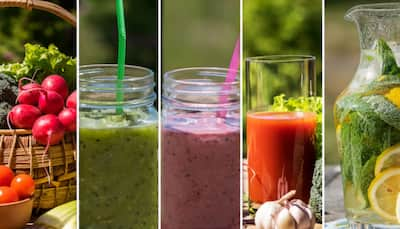Researchers found in a recent study that eating some common additives often found in processed food products may be linked to a higher risk of developing Type 2 diabetes. One, which the researchers dubbed as mixture five, involved additive mixtures that are used in diet drinks, including acidity regulators like citric acid, sodium citrates, phosphoric acid, and malic acid as well as coloring agents such as sulphite ammonia caramel, anthocyanins, and paprika extract along with sweeteners like acesulfame-K, aspartame, and sucralose. The mixture also included emulsifiers such as gum arabic, pectin, guar gum, and carnauba wax, a coating agent.
The other, called mixture two in the study, is more often used in processed foods. It combined a preservative, potassium sorbate, with a coloring agent, curcumin or turmeric, and emulsifiers such as modified starches, pectin, guar gum, carrageenans, polyphosphates, and xanthan gum. For example, potassium sorbate is often used in some diary products including yogurt and cheese, and carrageenan is often found in plant-based milks.

Pectin is found in a number of products, including jellies, jams, and fruit preserves, and xanthan gum is often found in mayonnaise, sauces, dressings, syrups, and dairy products. Meanwhile, modified starches are used to stabilize and thicken sauces, soups, and some baked items. “Consistently, several of the food additives emblematic of mixtures 2 or 5 were associated with higher Type 2 diabetes incidence in previous publications on emulsifiers and artificial sweeteners,” they wrote.
The researchers noted that their findings are novel and it would not be possible to cross-reference their study with previous research. “To our knowledge, this study is the first to evaluate and detect positive associations between food additive mixtures and higher Type 2 diabetes incidence in a large prospective cohort. Thus, direct comparison of our findings with previous epidemiological literature is not possible,” they wrote.
The other mixtures that were evaluated include one called mixture three, which encompasses riboflavin, ammonium carbonates, magnesium carbonates, and alpha-tocopherol. Mixture one included sodium carbonates, diphosphates, glycerol, ammonium carbonates, potassium carbonates, and sorbitol, while mixture four had ammonium carbonates, sodium carbonates, diphosphates, alpha-tocopherol, DATEM, magnesium carbonates; and lecithins. The study authors did not suggest that mixtures one, three, and four were associated with an increase in Type 2 diabetes.
“Further experimental research is needed to depict underlying mechanisms, including potential synergistic [or] antagonist effects,” they concluded. “These findings suggest that a combination of food additives may be of interest to consider in safety assessments, and they support public health recommendations to limit nonessential additives.” The research comes as Health Secretary Robert F.
Kennedy Jr. has said he would target ultra-processed foods as head of the sprawling Department of Health and Human Services (HHS). During his Senate confirmation hearing, Kennedy suggested that he believes highly processed foods commonly sold across the United States are “poisoning” Americans, blaming them in part for high obesity rates and chronic disease.
.
Health

Processed Food Additive Mixtures May Increase Diabetes Risk, Study Finds

Researchers looked at five separate additive mixtures often used in processed foods to determine whether they increased the risk of developing diabetes.















